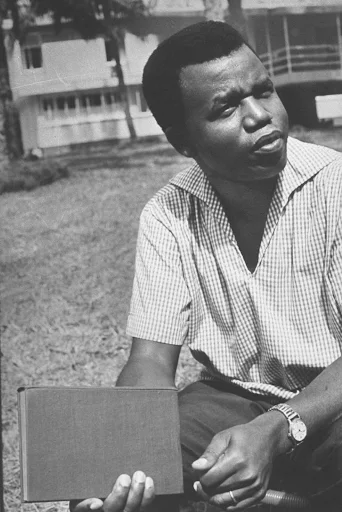By Promise Odejide
Success is a word that many people aspire to, but few achieve. It is often measured by external factors, such as wealth, fame, power, or recognition. But what if success is more than that? What if success is also about how you impact the lives of others, how you inspire them to pursue their dreams, how you leave a legacy that transcends your own existence?
One Nigerian writer who embodied this idea of success was Chinua Achebe, widely regarded as the father of modern African literature. Achebe was born in 1930 in Ogidi, a town in southeastern Nigeria. He grew up in a culture that was rich in oral tradition and Igbo folklore, but also exposed to the influences of Christianity and Western education. He developed a love for reading and writing at an early age, and went on to study English literature at the University of Ibadan.
Achebe's first novel, Things Fall Apart (1958), was a groundbreaking work that challenged the stereotypes and misconceptions of Africa and its people that were prevalent in the Western world. It told the story of Okonkwo, a proud and powerful leader of an Igbo clan, who struggles to cope with the changes brought by colonialism and Christianity. The novel was praised for its realistic and nuanced portrayal of African society, culture, history, and values. It also explored the themes of identity, tradition, conflict, and resistance that resonated with many readers across the world.
Things Fall Apart became an international bestseller and a classic of world literature. It has been translated into more than 50 languages and sold over 20 million copies. It has also inspired generations of writers, both within and outside Africa, who have acknowledged Achebe's influence on their work. Some of these writers include Chimamanda Ngozi Adichie, Ngugi wa Thiong'o, Wole Soyinka, Toni Morrison, Salman Rushdie, and Chinua Achebe's own son, Chidi Achebe.
Achebe did not stop at writing one novel. He continued to produce more works of fiction, poetry, essays, and criticism that reflected his vision of Africa and its place in the world. He also became a professor of African studies at various universities in Nigeria, the United States, and the United Kingdom. He was involved in several literary and cultural organizations that promoted African literature and arts. He received numerous awards and honors for his contributions to literature and humanity, including the Man Booker International Prize in 2007 and the Dorothy and Lillian Gish Prize in 2010.
Achebe died in 2013 at the age of 82, leaving behind a legacy that will endure for generations to come. He was not only a successful writer, but also an inspiring leader, teacher, mentor, activist, and role model. He once said: "One of the truest tests of integrity is its blunt refusal to be compromised." He lived by this principle and never compromised his values or his voice. He aimed not for success alone, but to inspire others with his journey.

This is insightful 🙏
ReplyDeleteA nice one...
ReplyDelete